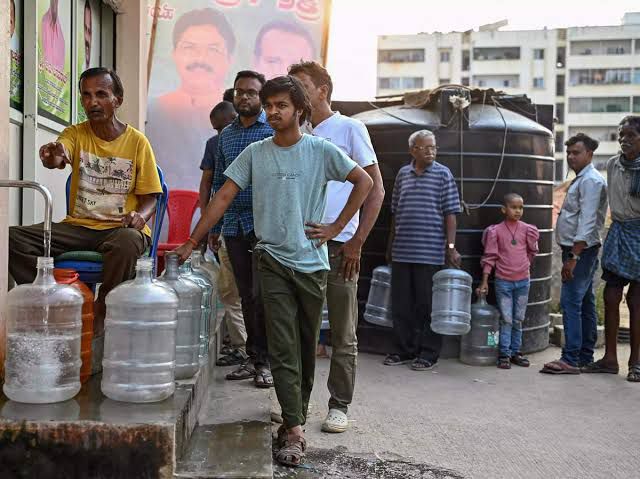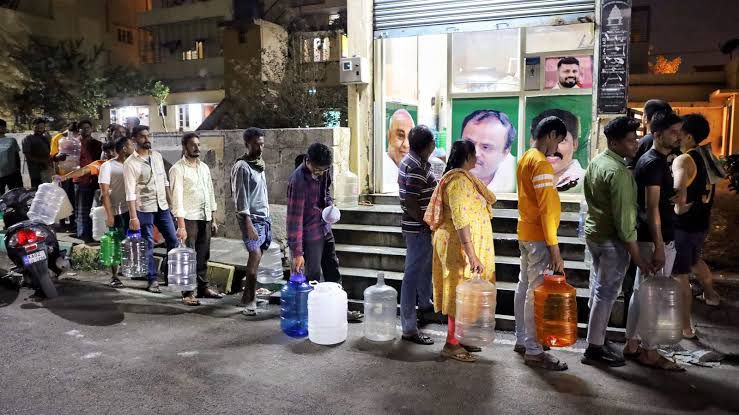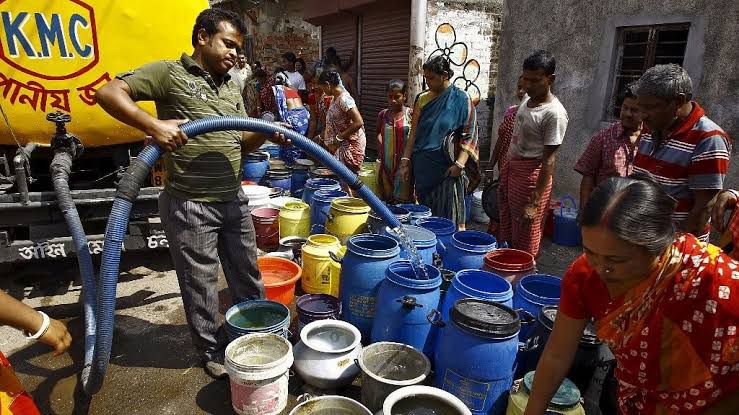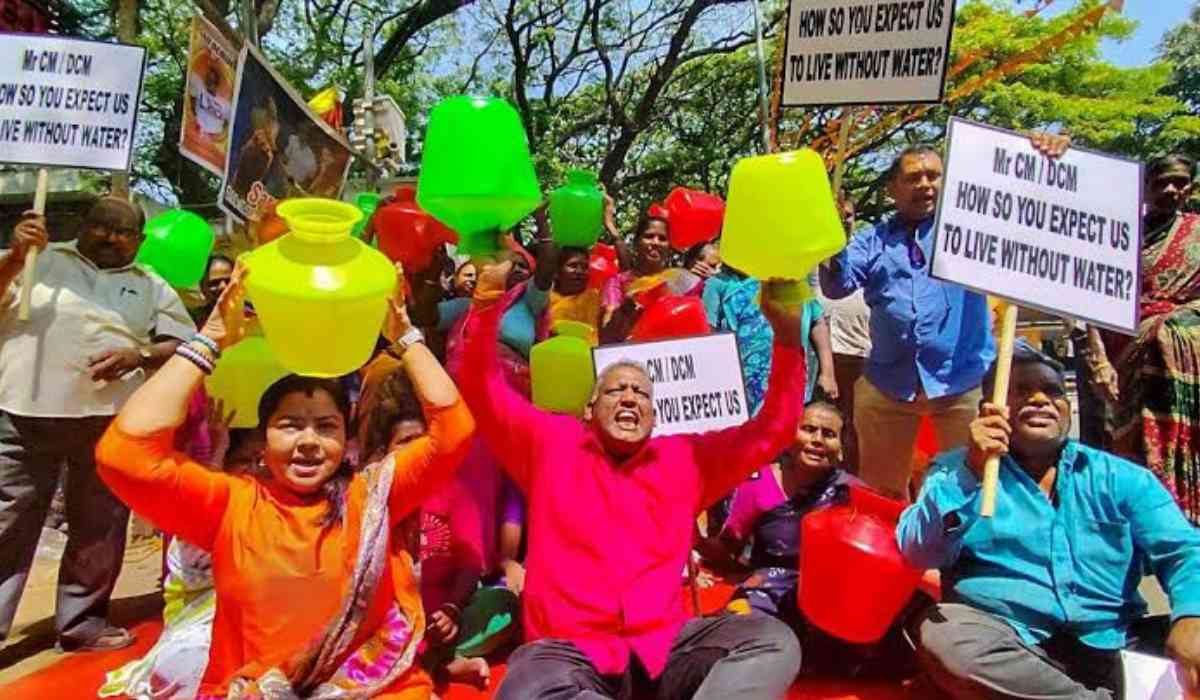Bengaluru, known as India's 'Silicon Valley' for its thriving tech industry, is currently facing a serious water crisis, compelling residents to adopt unconventional measures to cope with the dire situation. With depleting water sources and minimal rainfall, the city's inhabitants across various neighbourhoods, especially in Whitefield, KR Puram, Electronic City, RR Nagar, Kengeri and CV Raman Nagar, are grappling with severe water scarcity.
Unique and Innovative ways Residents are tackling the situation!
Bangaloreans are exploring every option to deal with it, from using Mall restrooms, cutting back on water-intensive chores like cooking and laundry to ordering take-out from restaurants and taking showers on alternate days, all in an effort to conserve water.
Even those who had water harvesting systems installed in their high-rise apartments found themselves in need of water tankers for basic necessities.

In an effort to lessen the effects of the water scarcity, some educational institutions have switched to online courses, while professionals have embraced the work-from-home (WFH) option. Amidst the water scarcity, coaching centers and schools have instituted emergency protocols akin to the lockdowns during the Covid-19 pandemic to guarantee educational continuity.
Posters with catchy slogans- 'no rain no water,' 'water water everywhere but not a drop to drink', 'conserve water', have been put up at many schools and building associations.
What Residents have to say?
The People bearing the consequences due to the Water Crisis, are expressing their concerns and frustration, when interviewed by Various Media Agencies.
Sujatha, a resident of KR Puram, said, “What to do? Clean vessels, cook food, wash clothes ... .so, we have started using paper plates, that way we have cut down on our water usage. And we order food twice a week.”
Shobha, a homemaker living in an high end apartment in Kengeri, said, "We do have facilities for rainwater harvesting in our apartment but then we hardly got any rains last year. So, despite having facilities, we could hardly store any water. Now we have been asked by the building association to use water judiciously and one way of doing it was, we have been restricted to water supply at specified intervals.”
Lakshmi V, an IT professional living in Singasandra, has been requesting her firm to allow WFH option, said, "If the situation persists, we are thinking of seeking a work from home option. We are planning to move to our native place in Tamil Nadu temporarily till rain arrives here.”
Rekha Sharma, a science teacher at a private school in the Whitefield area, said, "We have started having more discussions about the water crisis, climate change, what can be done to curb global warming and carefree usage of water. Lakes and borewells drying up is a major issue of concern and we discuss that...we need to have such discussions from early on in classes so that students are aware and become responsible citizens. We need to catch them young.”

Krishna, a software engineer living in KR Puram for the last few years said he has never faced such a water crisis. The apartment maintenance charge has gone up by Rs 1,000 due to dependence on water tankers. 'I have started looking for a new house; might have to pay more rent but anything for better water supply,' he said.
Karnataka State Hoteliers Association president Chandrashekar Hebbar said, "Most of our borewells have gone dry and we are dependent on water tankers. If there is no rain around Ugadi festival (next month), then we will have to make alternative arrangements.”
People say they are forced to pay more for the tanker water, although the rates have been capped by the government.
What’s the reason for the Water Crisis? Rain Deficit
The Cauvery River and groundwater are the two main sources of water for Bengaluru. Sewage treatment plants process recycled water, which is used for most non-drinking purposes. The main sources have reached their breaking point because there hasn't been any rain in a while. Bengaluru requires 2,600–2,800 million litres of water per day, and half of that amount is currently supplied. As a result, people living in the city struggle on a daily basis.
People who live in Bengaluru's periphery, particularly in the 110 villages that were incorporated into the city in 2007, are also bearing the brunt of this.

Government Initiatives and Political Turmoil
In an effort to alleviate the water crisis, the government has started restoring dried-out lakes with treated water with 1,300 million litres per day. The Bangalore Water Supply and Sewerage Board (BWSSB) will also install filter borewells and construct water plants using an innovative technology near the restored lake beds to supply water after testing, the civic agency officials said.
But the crisis has also turned into a political battleground, with the opposition BJP and the ruling Congress government accusing each other about who is to blame for the poor handling and support of the water scarcity problem.
While the BJP has held several protests blaming the government, the Congress has accused the BJP-ruled federal government of not providing financial assistance to drought-hit Karnataka.
(Inputs from Multiple Sources)
Photo Credits: Various Sources
©️ Copyright 2024. All Rights Reserved Powered by Vygr Media.






















